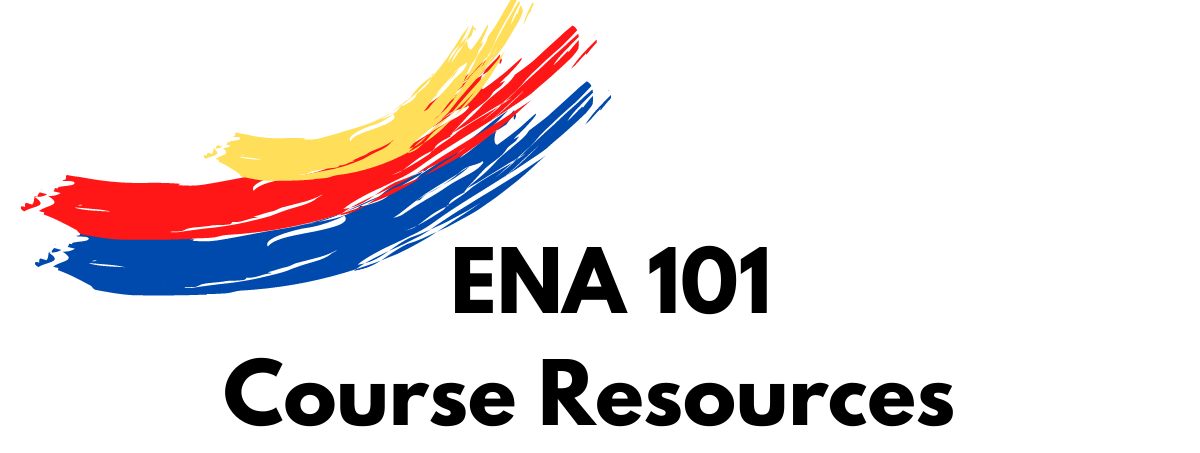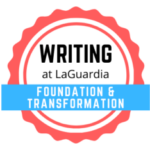
Course Description
3 credits; 7 hours
Fulfills “Pathways: Required Core”
In this course students write coherent essays in varied academic formats, both in and out of class, responding to culturally diverse materials and using appropriate technology. Students
in this course will fulfill all stated objectives of English 101. Three additional hours each week support students with lower placement scores in achieving college-level writing through intensive practice. Admission is based on college placement test scores and is reserved for first semester students only. Course meets seven classroom hours weekly.
Prerequisite: CSE095 or CSE099; Proficiency Placement Index score.
Pathways Student Learning Objectives (Common Across CUNY):
- Read and listen critically and analytically, including identifying an argument’s major assumptions and assertions and evaluating its supporting evidence.
- Write clearly and coherently in varied, academic formats (such as formal essays, research papers, and reports) using standard English and appropriate technology to critique and improve one’s own and others’ texts.
- Demonstrate research skills using appropriate technology, including gathering, evaluating, and synthesizing primary and secondary sources.
- Support a thesis with well-reasoned arguments, and communicate persuasively across a variety of contexts, purposes, audiences, and media.
- Formulate original ideas and relate them to the ideas of others by employing the conventions of ethical attribution and citation.
Course Learning Objectives (Specific to LaGuardia):
The first seven objectives are the same as ENG101; the last three are specific to ENA101.
- Introduce process-based writing, including prewriting, drafting, revising, editing, proofreading, critiquing, and reflecting.
- Enable students to read, write, and listen critically and analytically, including identifying a text’s major assumptions and assertions and evaluating its supporting evidence. As part of this process of inquiry and problem solving, faculty will familiarize students with the concepts of audience, voice, context and purpose.
- Provide students with opportunities to write clearly and coherently in varied academic genres, rhetorical modes, and forms of argumentation using standard written English (SWE).
- Provide early assignments that allow students to practice utilizing summation, paraphrase, quotation, and citation to create well-reasoned arguments.
- Provide later assignments that enable students to develop research skills, most importantly the evaluation and synthesis of primary and secondary sources.
- Enable students to formulate original ideas and relate them to the ideas of others by employing the conventions of ethical attribution and citation and avoiding plagiarism.
- Enable students to complete essays that will increase in complexity, ranging in length from 600 to 1500 words.
- Provide students with individualized support and practice throughout all phases of the writing process to ensure the development of college-level writing skills to be successful in English 101.
- Reinforce the reading and writing opportunities provided in English 101.
- Provide students with additional time to develop a deeper understanding of the recursive writing process necessary for college composition.
Program Learning Objectives
**This is informational as these 2 objectives are embedded in the Course Learning Objectives. These do not need to appear on syllabi. These objectives are assessed annually by the WPAs and Composition Committee and shared with the Assessment Leadership Team.**
PLO 1: Evaluate and synthesize sources using summary and/or paraphrase and/or quotation.
PLO 2: Engage critically and analytically with a text’s major assumptions and assertions.
Assessment in ENG 101
Coming soon
Course Resources
Faculty-Facing Introduction To Sheet–About Teaching This Course
Please note: There is no separate Student-Facing ENA 101 sheet. Students should receive the regular ENG 101 sheet. You can supplement student introductions to ENA 101 with your own materials or with the introductory videos available on the Teaching with the ENA 101 Framework page.
Teaching with LaGuardia’s ENA 101 Framework
Please visit the separate “Teaching With the ENA 101 Framework” page for materials to support classroom work on deceleration, habits of mind, integrating reading & writing, improving thinking skills, responding to affective issues, introducing academic discourse, improving self-editing, and working towards a multilingual paradigm.
Latest ENA 101 Posts
- Weekly Notes & Check-In Assignment for ENA / ENG 101 by J. Elizabeth Clark
- Connecting Reading to Writing Topic Sentences and Thesis Statements for ENA 101 by Marisa Klages-Bombich
- Analyzing Quotations for Close Reading, Reading Comprehension, Student Engagement and Interaction in ENA 101 by Michelle Pacht
- Close Reading & Analysis: An Assignment to Support the Move from ENA/G101 to ENG102 by Leah Richards
- Using Comparison to Support Analysis in ENA 101 by Christopher Schmidt
- ENA 101 Reading Logs by Jennifer Baumgartner
- The Revision Process and Applied Grammar for ENG 101 by Misun Dokko
- How to Analyze an Op Ed, Class Exercise for ENA 101 by Monica B. Sanning
- Group Revision Activity by Candace Elise Hoes
- Fear of Writing by Irwin Leopando


